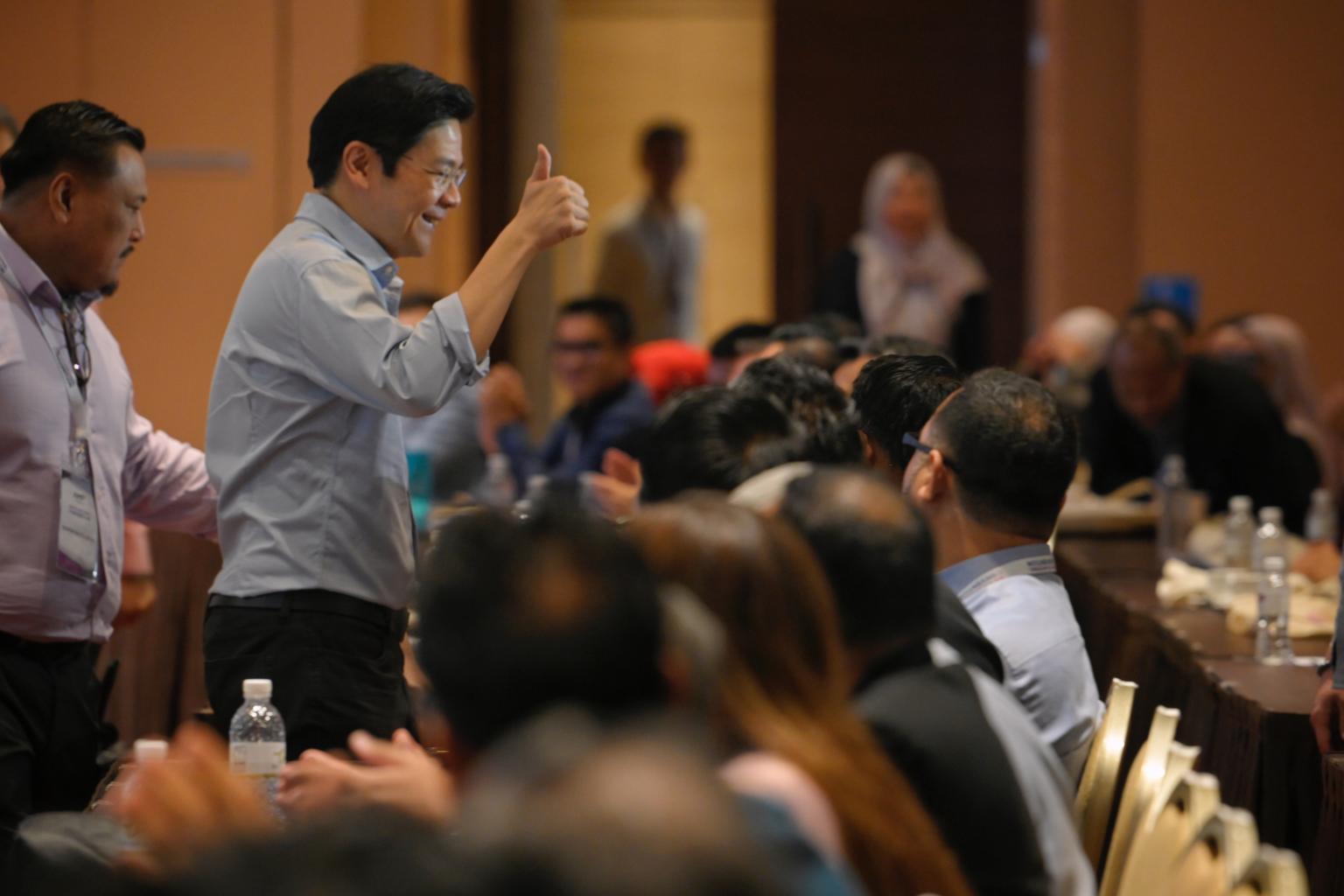Malay/Muslim groups need to collaborate strongly to tackle social issues: DPM Wong
Sign up now: Get ST's newsletters delivered to your inbox

DPM Lawrence Wong greets guests at the AMP 4th National Convention held at Max Atria at Singapore Expo on Oct 15, 2022.
ST PHOTO: MARK CHEONG
SINGAPORE - Malay/Muslim professionals have much to offer and must be mobilised to contribute back to the community, especially as they can be mentors and role models to the next generation.
Deputy Prime Minister Lawrence Wong said this on Saturday at the AMP 4th National Convention at Max Atria @ Singapore Expo.
It was attended by 500 professionals, community partners and others in the local Muslim community.
Mr Wong noted that a growing number of Malay/Muslim professionals have their own unique needs, worries and aspirations, and Singapore will need to see how to help them, including enabling them to upgrade their skills to remain relevant in the workforce.
The AMP convention is held once every 10 years to discuss new strategies that can propel the Muslim community towards greater success.
Mr Wong noted that the proportion of Malay residents over the age of 25 who have attained at least a post-secondary qualification has risen from less than one-third in 2010, to almost half in 2020, driven by more of them obtaining diplomas and degrees.
At the same time, the proportion of Malays in PMET roles has increased to 40 per cent in 2020, up from 30 per cent a decade ago. PMET refers to professionals, managers, executives and technicians.
Malay/Muslim organisations, such as self-help group AMP Singapore, need to collaborate strongly with one another, as well as the Government, to address social issues that are increasingly becoming multi-faceted and complex, said Mr Wong, who is also Finance Minister.
"There will be times when our starting points and methods differ. There will be occasions where we have different views. But so long as we are all focused on the same goal and the common ground we share as Singaporeans, I am confident that we can work together to make everyone better off," he said.
He added that to make a real impact, different community partners need to come together to provide holistic interventions and strong wraparound support.
He noted that as Singapore moves forward, the needs of its society are becoming more complex and diverse.
He said: "That's why we must come together with a family-centric approach - mobilising resources across different entities to meet the needs of the family, rather than forcing the family to cater to our own organisational silos.
"If we take that family-centric approach, I believe we can make progress in uplifting more families, and ensure that Singapore remains a place where everyone can aspire towards a better life."
The Government will continue to invest heavily in the people, said Mr Wong. It will work to equip citizens with relevant capabilities and skills, and give everyone the extra advantage to progress and excel in their careers and professions.
Mr Wong said what AMP Singapore is doing today for the community is exactly what the 4G leadership team hopes to achieve for the country with the Forward Singapore nationwide engagement exercise to build a fairer and more inclusive society.
He added: "Crucially, this exercise is not just about what the Government can do. It is also about what all of us as Singaporeans can do together, and self-help groups like AMP will play a key role in this effort."
In a dialogue with Mr Wong, Minister in the Prime Minister’s Office Maliki Osman and Minister of State for Home Affairs and National Development Faishal Ibrahim, participants raised concerns about Malays being disproportionately represented in the bottom 20 per cent of households, the challenges to social mobility, and majoritarian politics, among others.
In response, the panellists spoke of implementing intervention from young, such as at pre-school level, and called for more involvement from the community as role models or a helping hand.
They also mentioned the need to do more to find the right balance and accommodate one another from different groups, including minorities, as well as noted current efforts to understand, listen, engage and constantly fine-tune policies.
The dialogue was held under the Chatham House rule, which meant that participants’ views could not be attributed to and identified in reporting.


